Where next for BMW? Head of Product Management Christian Pingitzer talks about electrification, alternative fuels, and bold targets
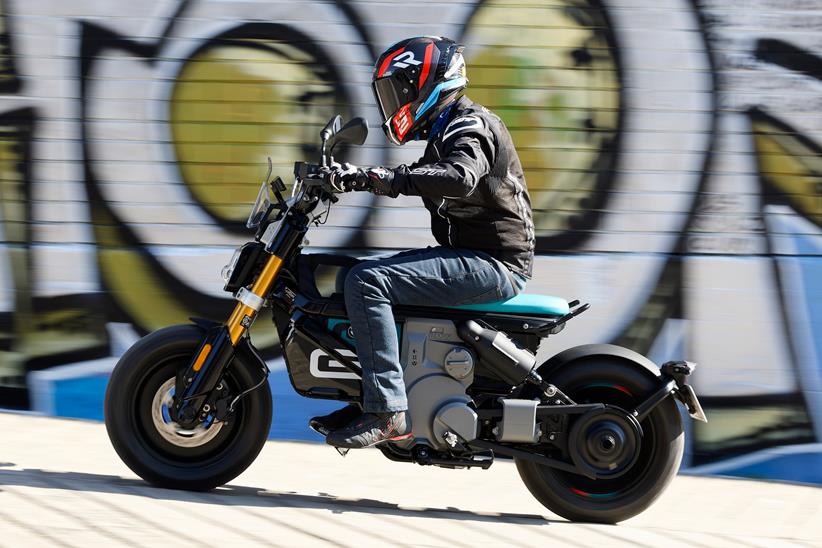
BMW have big plans for the electric bike market, announcing that they are aiming to sell 100,000 e-mobility bikes for urban transport by 2030.
The German brand revealed their intention in early February, 2024, during the launch of their plug-in CE 02 model – an L-plate friendly inner city scoot that can be enjoyed in some European markets by riders as young as 14.
One of two electric two-wheelers currently available from the brand, it joins the larger 42bhp BMW CE 04, which arrived back in 2022 and can be ridden on an A2 licence.
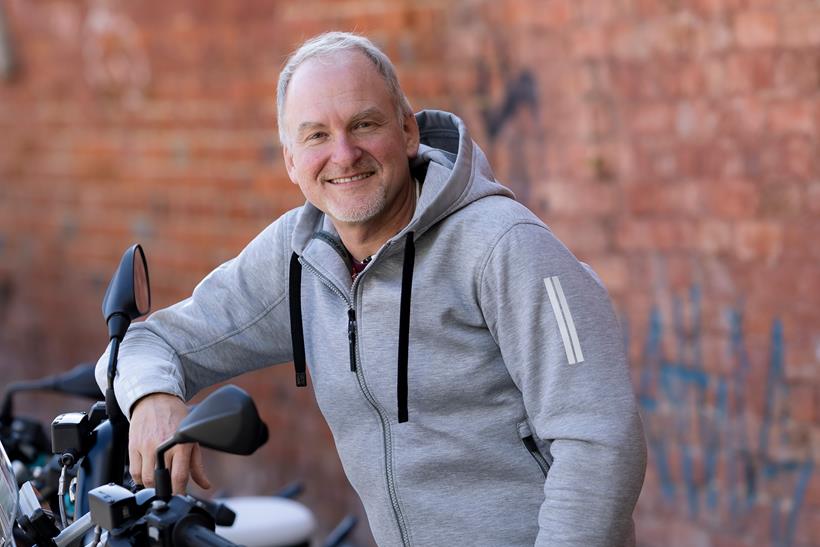
“I think all the brands at the moment want to answer that big question of how is the transformation into the future coming,” BMW’s Head of Product Management, Christian Pingitzer told MCN. “We all know we can’t go on like this, but what’s the answer to the question?”
Although BMW are investing heavily in electric technology, Pingitzer was quick to state that there are no immediate plans to remove combustion engines – stating that plug-in technology still doesn’t work for some markets.
“We feel at the moment that it’s not the right time to just take our bikes and stuff some electric motors in and make it look like it was before,” he continued. “Some brands build motorcycles like that, but they’re not super successful at the moment.
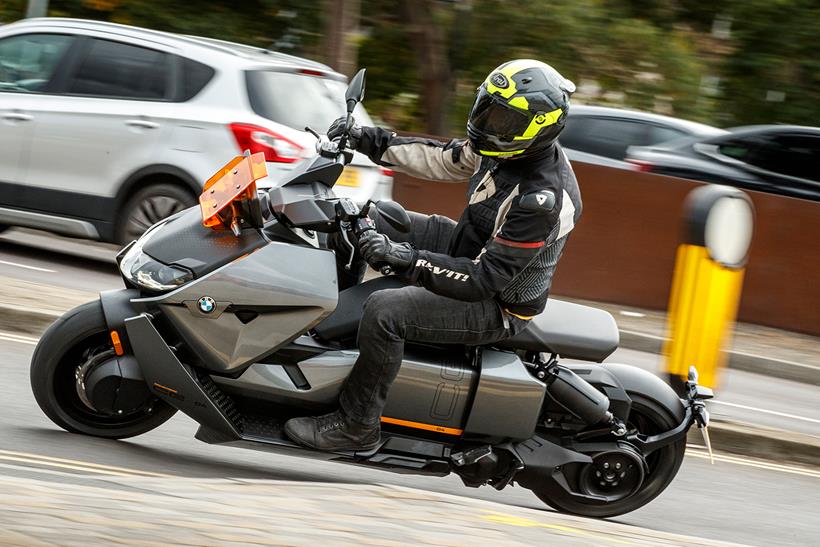
“We’re carefully looking into the future, so we think it’s not the time to just produce an electric motorcycle. As it is, we are really carefully looking into the markets, and we’re also consulting with the younger generation.”
It’s hoped that this younger generation of riders coming through, who likely have less desire to own a large capacity combustion motorcycle, will be hooked by BMW’s electric urban offering and further buy into the brand as more alternative fuel source machines come to the market.
“We really want to understand how the younger generation are motivated,” Pingitzer added. “We strongly believe that two-wheel fun and riding on motorcycles or scooters… whatever the drivetrain is… will live forever as long as we can envisage what the technical solutions are.”
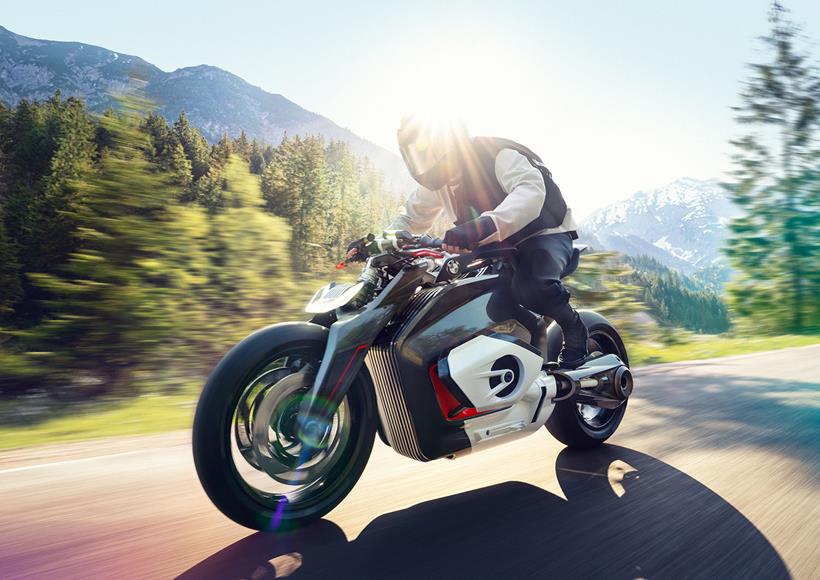
BMW are still a long way off meeting their 2030 100,000-unit goal, though. A glance back at 2023 sales figures shows that 7177 CE 04s left showrooms across the year – a figure that’s actually up by 44% on 2022. Exactly how well the CE 02 will perform remains to be seen.
The challenge is further highlighted when you consider sales of the petrol-powered BMW C400GT and C400X scooters stood at a combined 13,283 across last year – suggesting that while there is plenty of appetite for easy and accessible urban transport, many still aren’t prepared to pay a premium to go electric.
The new CE 02 starts at £7450 for the AM version, only capable of 28mph. This then climbs by £1000 for the base spec full-capacity version and climbs to £9330 OTR when you add in the optional Highline package.
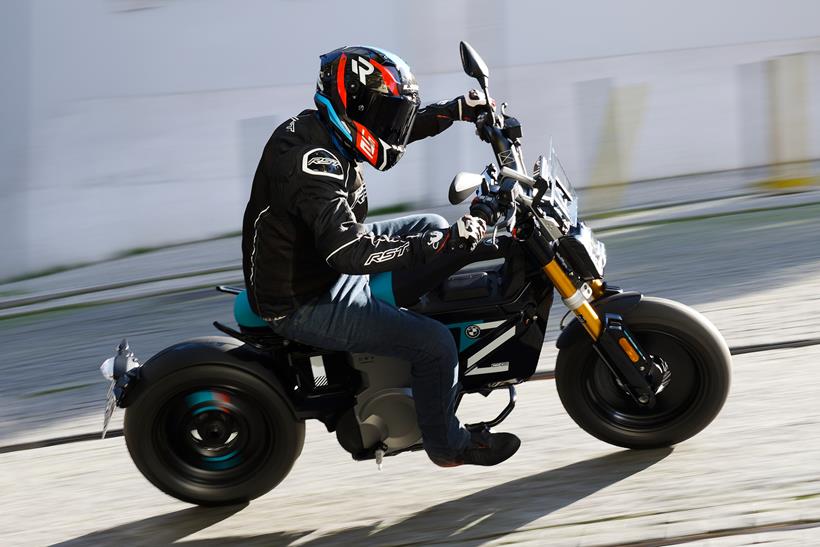
For the larger CE 04, prices start at £12,850, which is almost double the base-spec £6560 C400X scooter. Even the more expensive C400GT costs less than the slowest version of the CE 02, at £7340.
“We’re working on the urban mobility more, but we also have some really good concepts for motorcycles,” the BMW man added. “But, at the moment, as we all know, the tech is expensive, it is very heavy, we don’t have proper range to get a good power output, so those concepts that we see also from other manufacturers in the higher power output are not good for the market at the moment.”
Away from electric power, Pingitzer believes an immediate environmental improvement would come with the introduction of alternative non-fossil fuels for combustion engines.
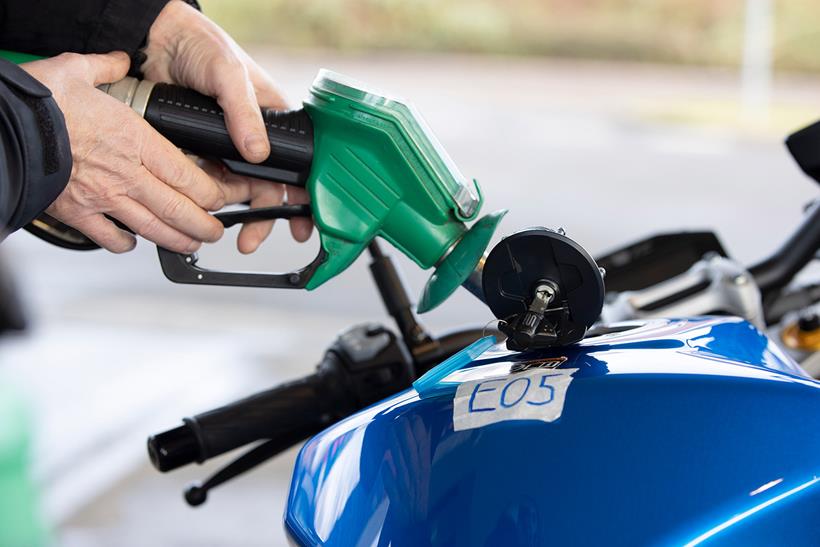
He told MCN: “It would be super smart to go into e-fuels as soon as possible, or synthetic fuels, to get rid of the emissions that we have at the moment with all of the range.
“And then look closely into the innovation of other concepts. Electric is one of them, but it’s probably not the answer to each and every thing – unless we come up with a magic battery with no weight, and an acceptable price, that gives us an acceptable range.”
Making batteries cleaner
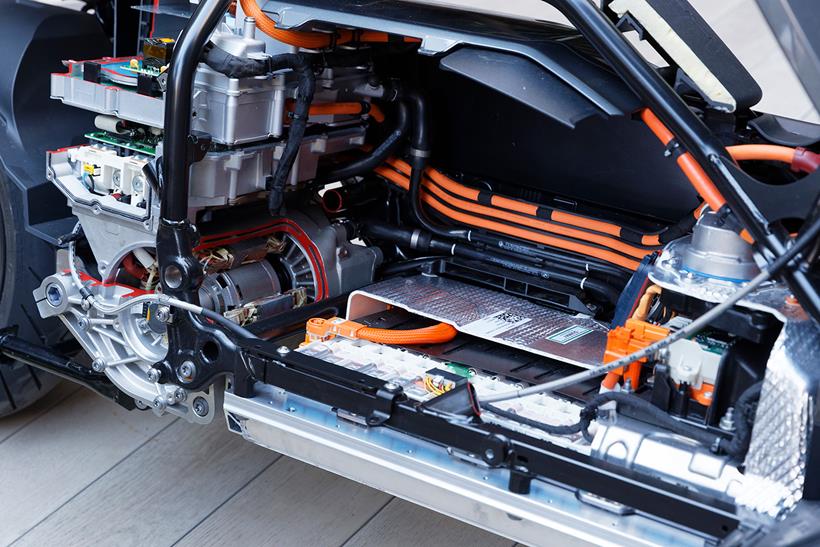
MCN also spoke to BMW Head of Product Management, Christian Pingitzer, about how the brand is making electric motorcycle production cleaner. This is because while there are no emissions at the tailpipe (because it hasn’t got one) there are still pollutants generated in the production phase.
“Well, we have a sustainability division at BMW Group that looks at the whole equation for cars and motorcycles,” he said. “We’re looking at where to source from, and how the batteries are produced. The batteries in their base principle are taken from our car batteries, so we try to not come up with a new production system that is causing us more problems and probably higher emissions and stuff like that.
“We’re really putting a lot of effort into reduced emissions, battery production, recycling… so the whole field of sustainability is looked at very closely from our side.”



